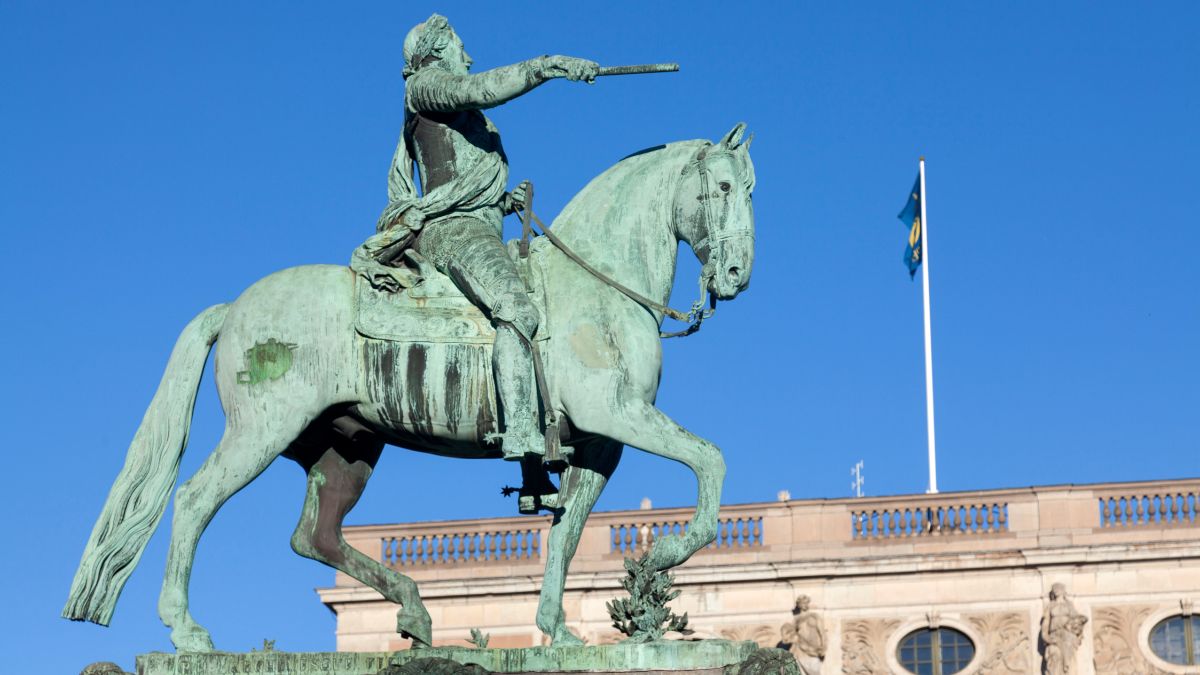Kalidasa (Classical Sanskrit Literature)
Kalidasa (Classical Sanskrit Literature)
Gustavus Adolphus – Sweden

Gustavus Adolphus – Sweden
In the annals of history, few monarchs have etched their names with the brilliance and ferocity of Gustavus Adolphus of Sweden. His reign, spanning from 1611 until his untimely death in 1632, was not just a chapter in Swedish history but a monumental saga that reshaped the European landscape, both politically and militarily. Gustavus Adolphus, often hailed as “The Lion of the North” or “The Father of Modern Warfare,” was a figure of awe, whose very name evoked respect and fear across the battlefields of Europe.
Born into the stormy era of the Thirty Years’ War, a conflict that ravaged Europe, Gustavus Adolphus ascended to the throne at the tender age of 17. Yet, despite his youth, he possessed a vision for Sweden that transcended the limitations of his time. Under his leadership, Sweden transformed from a relatively obscure kingdom into a major European power, a testament to his genius in statecraft and warfare.
What set Gustavus Adolphus apart was not merely his skill as a commander but his revolutionary approach to warfare. He was a tactician par excellence, whose innovative strategies and reforms in the Swedish army laid the groundwork for modern military tactics. He introduced mobile artillery, making the battlefield more dynamic and unpredictable. His armies were known for their lightning-fast maneuvers and the use of combined arms, integrating cavalry, infantry, and artillery in a seamless and deadly dance of war.
The Battle of Breitenfeld in 1631 stands as a testament to Gustavus Adolphus’s military genius. Facing the seasoned forces of the Holy Roman Empire, his Swedish army, outnumbered and far from home, achieved a stunning victory that sent shockwaves throughout Europe. It was not just a battle won but a demonstration of military innovation and audacity that would influence European warfare for centuries to come.
Beyond the battlefield, Gustavus Adolphus was a monarch of profound foresight and wisdom. He nurtured Sweden’s administrative and economic infrastructure, laying the foundations for a prosperous and stable state. His passion for education led to the founding of universities, and his commitment to religious freedom marked him as a ruler ahead of his time.
Yet, it was at the Battle of Lützen in 1632 that the meteoric rise of Gustavus Adolphus met its tragic end. Leading from the front, as was his custom, he fell in the heat of battle, his death casting a pall over Sweden and Europe alike. Though he died, his legacy endured, immortalized in the annals of history and the hearts of his countrymen.
Gustavus Adolphus’s impact on Sweden and Europe cannot be overstated. He transformed Sweden into a dominant military power, championed the cause of Protestantism during the Thirty Years’ War, and influenced the course of military tactics and strategy. His vision, courage, and reforms echo through time, a beacon of leadership and innovation.
In reflecting on the life and legacy of Gustavus Adolphus, one cannot help but be awestruck by the sheer force of his character and achievements. He was not just a king; he was a phenomenon that forever altered the landscape of Europe. His story is a captivating epic of ambition, intellect, and valor—an enduring legacy that continues to inspire and astonish to this day.